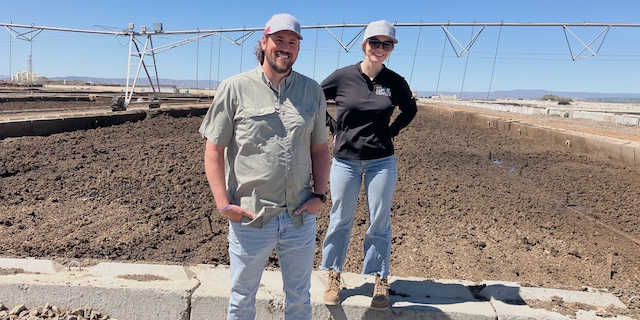Aide: Ranchers’ wolf woes concern Inslee
Published 9:05 pm Wednesday, January 8, 2020

- J.T. Austin, adviser to Gov. Jay Inslee, speaks to Washington Fish and Wildlife’s Wolf Advisory Group on Jan. 8 in Tumwater. Austin says Inslee supports cattle ranching and wants to help producers cope with wolves.
TUMWATER, Wash. — Gov. Jay Inslee supports cattle ranching and wants to help ranchers cope with wolves, a top aide said Wednesday.
Labeling the Democratic governor as a “liberal, progressive” who’s “anti-agriculture and anti-cattle” would be wrong, the governor’s natural resources policy adviser, J.T. Austin, said at a meeting of Fish and Wildlife’s Wolf Advisory Group.
“It’s an oversimplified default position to take,” she said. “This is not about politics. It’s not a Republicans and Democrats issue. It’s an issue where we need an all-hands-on-deck response.”
Austin’s remarks came as the advisory group began discussing Fish and Wildlife’s policy on when to kill wolves to stop attacks on livestock.
Inslee said in a letter to the department last fall that repeatedly killing many wolves in the Kettle River Range in northern Ferry County was “unacceptable.”
Fish and Wildlife Director Kelly Susewind answered in a letter that the department was looking for new non-lethal tactics to prevent wolves from attacking livestock. The department has not offered any specifics.
Environmental groups hailed Inslee’s letter, which echoed their complaints that Fish and Wildlife has too often resorted to killing wolves, particularly in response to cattle lost by the Diamond M ranch on federal grazing land.
Washington Farm Bureau government relations director Tom Davis, a member of the Wolf Advisory Group, told Austin that Inslee’s letter implied the governor didn’t approve of the department using its lethal-control policy.
“The governor’s letter was offensive to us,” Davis said. “It wasn’t well received by some folks in rural Washington.”
Austin said the letter wasn’t meant to take sides, but rather urge collaboration to prevent annual losses of cattle and wolves.
She said she met recently in northeast Washington with ranchers and others close to managing wolves. She said that she hoped Inslee can visit the region after the legislative session ends in March.
“He’d love to go out and have coffee with ranchers having these experiences,” Austin said.
Bill McIrvin, a partner in the family owned Diamond M Ranch, was one of the cattlemen who met with Austin.
“I hope (Inslee) would be interested, and I hope he would have an interest in de-escalating emotions about this issue,” McIrvin said. “If he could do something to ease tensions around these wolves, it would be a win for everyone.”
Fish and Wildlife’s lethal-control policy calls for considering removing wolves after a pack attacks three livestock in 30 days or four in 10 months. The department sometimes waits longer to see whether more non-lethal measures will stop the attacks.
Quicker action would reduce the number of cattle and wolves killed, McIrvin said. Fish and Wildlife should turn over lethal control of wolves to county sheriff’s offices, rather than having the removal of wolves get “blown up in front of the media in Pierce and King counties,” he said.
”It could be addressed to take care of our problem and still have lots of wolves for people who like wolves,” McIrvin said.
McIrvin said he doesn’t know of any deterrence measure that hasn’t been tried, or any that is effective in stopping chronic depredations. “Once wolves start killing livestock, none of the non-lethals have merit,” he said.






